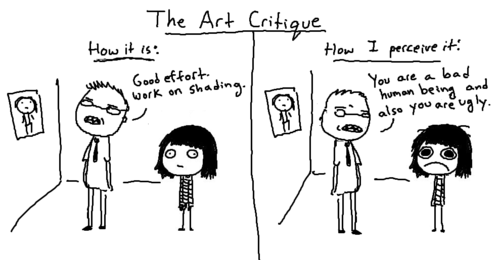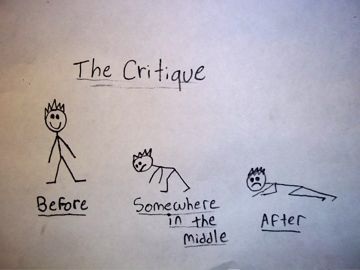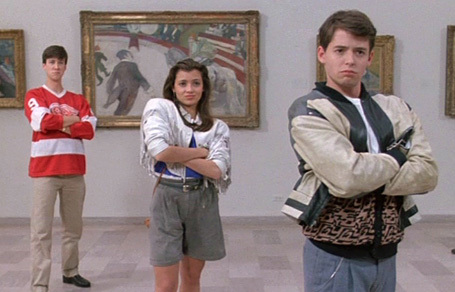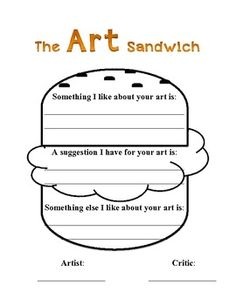|
I've been thinking critically lately and I can't find much I like about the way critique works in my classroom. It's one of those things I do because that's what art teachers do but it never really makes a great lesson. My students are compliant and do what I ask of them but it's often obvious that they're counting the minutes until it's over. So I asked them why. "We don't like to talk about our work. It's embarrassing." "People judge us." "It's just so awkward." "Everyone already knows what sucks" I remember feeling the same way about many, many critiques. The fist one at art school when I ran to the bathroom and cried afterward to the ones where I felt smug because my work was okay and I knew others would get slammed. I remember a lot about the way I felt but nothing about what I learned. Why do I make my students do this? It's important, right? Well........ The reason I do whole class critique of student work, or used to, is because I want them to analyze work, develop opinions and use art vocabulary. I also want the work to be seen and admired. I'll start with analyzing work. Why criticize art work when it's finished? It's kind of besides the point because the work is done. What really needs to be done to teach this skill is working with students to analyze work in progress. This happens through conversation, first just between the student and the teacher, then in small groups. This builds trust and a positive relationship. "What do you like about how your work is going?" "What challenges are you experiencing?" "What is your vision?" Developing opinions is also important, as is using art vocabulary. I want my kids to do this, but not at the risk of the climate of trust and confidence that I want to instill in my classroom. Instead, I focus on having them develop opinions through analyzing the work of professional artists and by interpreting open-ended themes in their personal work. Through conversation and writing they will have many opportunities to apply art vocab in settings where I can give them personal feedback. Thinking about critique has made me realize that I don't just want work to be viewed passively, I want students to interpret it actively.
Like games. I tried one this week. I divided my art two class into groups of three or four. I had them start by sharing their work, which was a response to a piece they selected from our local museum's collection. They shared the work they were inspired by and talked about how they interpreted the theme. Next came the game. I gave them thirty minutes to create an one artwork, as a group, that included themes from each group member's work. It was great. They actively discussed themes and analyzed how they fit together, then interpreted the information to create something new. The artwork was imperfect and rushed but the conversations were dynamic and the group's descriptions of what they made showed that they really though about the work. And they had fun.
1 Comment
12/21/2014 04:44:47 am
Melissa, I always appreciate the way you make me think. The timing of this post is perfect, especially because my students will be using analysis to react to & learn about art for their culminating task in January. I know I will be busy formulating a plan over the holidays to make the most of the experience.
Reply
Your comment will be posted after it is approved.
Leave a Reply. |
Mrs. PurteeI'm interested in creating a student student centered space for my high school students through choice and abundant opportunity for self expression. I'm also a writer for SchoolArts co-author of The Open Art Room. Archives
December 2019
Categories
All
|




 RSS Feed
RSS Feed
